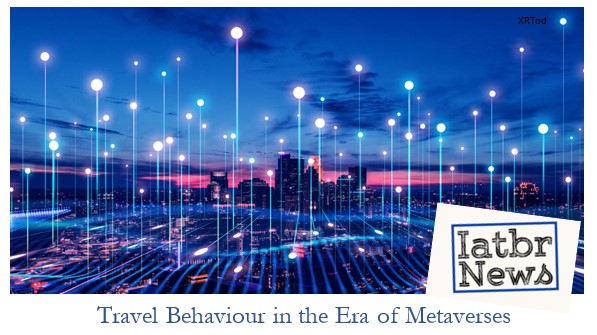TITLE: Travel Behaviour in the Era of Metaverse
|
Background: IATBR NEWS is already born and is missioned to bring futuristic visions and mindboggling ideas to the attention of travel modelers around the world. Unlike the old days when academics would create knowledge, generate innovative ideas, and explore the feasibility of the ideas before they get adopted and translated by the industry into practice, start-ups and entrepreneurs of today joined the mission of producing novel and adventurous ideas. They generate, explore, and implement ideas, technologies and tools on an expeditated path with a high risk of failure. At the same time, the reward of success is significant motivating entrepreneurs and investors to consider risking their resources in technology-savvy innovations. The consequence of this paradigm shift of innovation generation procedure is the flow of futuristic ideas that academics have not sufficiently studied (at least not by all relevant areas of science), or they are delayed until the phenomenon has already become a failure or success by a few start-ups. One of these ideas is the emergence of virtual worlds called metaverses. IATBR NEWS will be published every six months in which selected short articles (around 10 in each issue) on the topic will be published in it, in addition to publishing information recent and future activities of the community of IATBR.
|
Discussion: In this issue, we invite researchers, scientists, and practitioners to describe, criticize, support, or challenge ideas around the travel behaviour of people occupied by use cases of metaverses, where avatars of people are used to visualize virtual reality social connections. In this world, people might travel less often (or more often, and this be an exciting ground for debates), and preferences over the real and virtual mobility options might experience a revolution. The necessity of having AI-empowered decision support applications for metaverses can result in an unprecedented lifestyle for the real-world including people, societies, and the environment.
This issue promotes evidence-based discussions and arguments provoking critical, creative, and lateral thinking about the requirements and consequences of a world full of metaverses. Such metaverses are not simply used for gaming purposes but are expected to facilitate an AI-empowered lifestyle supporting meetings, e-commerce, and online education. Ignoring the hardware requirement of a world full of metaverses, we want to examine the costs, benefits, and impact of virtual realities becoming intertwined with the real world. The lens through which we want to explore this futuristic world is travel behaviour, decision making, and infrastructure planning topics. Further, related topics are big data and cloud computing technologies expected to expedite the advent of metaverses. However, the relevant topics are not limited to this limited list of suggestive areas. This issue invites authors to submit their short articles (maximum 500 words[1]) where one picture/diagram must be included as a schematic abstract. The articles are expected to have only one author. (the article will be published with the photo of the author). The authors are invited to reveal a novel view about travel behaviour paradigm shift assuming that metaverses empowered by AI shape the day-to-day lives of people around the world. All aspects related to mobility, including air, maritime, non-motorized, urban, regional, rural, passenger and freight, are welcome to be discussed. [1] Cited papers are included as footnotes not included in the word count |
Key Dates: The deadline for submission of the articles is the end of April 2022. The articles are expected to be published in the first newsletter of IATBR in August 2022.[1]
Contact: Submissions and queries should be emailed to Taha Rashidi ([email protected]) [1] P.S. The total number of words of the article above was 594 words. |
